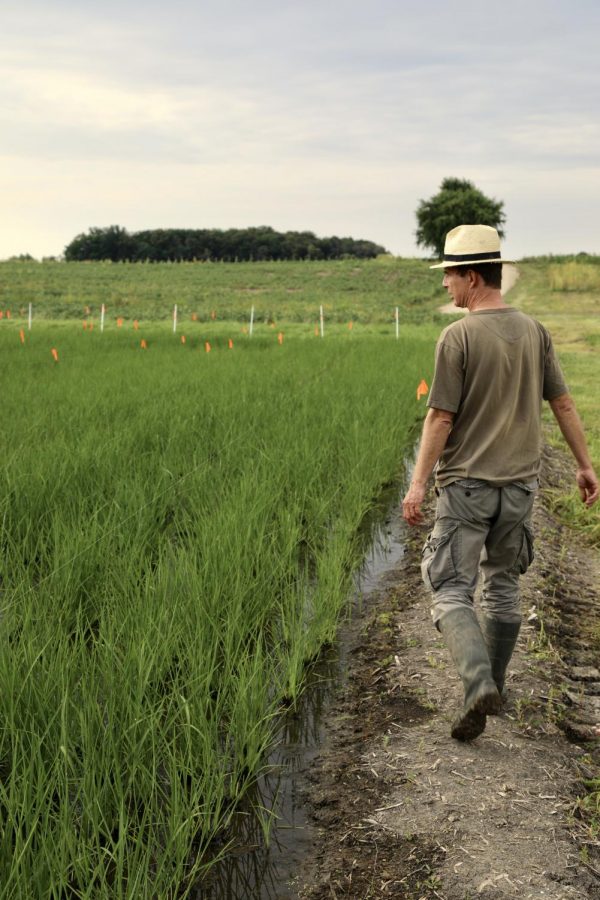 Lifeguarding at Washington Pool on Milwaukee’s north side taught me many things. Grown ups who can’t swim don’t like being saved. Never leave the hose on in the pump room or you’ll flood the basement. And the kids from low income, urban families who come to the pool every day rely heavily on bureaucratic government policy they probably didn’t even know existed: the farm bill.
Lifeguarding at Washington Pool on Milwaukee’s north side taught me many things. Grown ups who can’t swim don’t like being saved. Never leave the hose on in the pump room or you’ll flood the basement. And the kids from low income, urban families who come to the pool every day rely heavily on bureaucratic government policy they probably didn’t even know existed: the farm bill.
President Barack Obama extended the farm bill Friday when he signed the Agriculture Act of 2014. This is the second massive bipartisan bill to be enacted in as many months, the first being the Bipartisan Budget Act of 2013.
Besides the shock of Congress working together, the new farm bill makes some pretty significant, though not entirely prudent, changes.
The law, debated for the past two years, totals $956 billion in expenditures and makes two noteworthy changes. The first concerns food stamps. Approximately 80 percent of the money is allocated to the Supplemental Nutrition Assistance Program, the official name of the food stamps program. The new bill will cut approximately $8 billion in funding to food stamps over the next 10 years. This is far short of the $40 billion that House Republicans initially sought to cut.
As the New York Times noted, only 4 percent of food stamp beneficiaries will be affected. Yet, that amounts to a whopping 850,000 families losing almost $90 a month in food assistance.
It’s unfortunate that cuts are being made to some of America’s poorest citizens. However, the bill makes those cuts in a semi-responsible manner, avoiding the across-the-board cuts that Congress resorted to with the sequester, a decision that cuts spending to almost everything when Congress couldn’t decide what exactly to cut. Instead, the law closes loopholes like the Utility Assistance Program, which offered federal food stamp dollars to families whose utility bill was subsidized by the state. Many states took advantage of this by offering subsidies as little as $1, allowing families to receive hundreds of dollars more in food stamps.
House Republicans are quick to note the cost of food stamps has nearly doubled under Obama. This is true. But they fail to consider the impact of the economic recession. As the economy continues to recover, albeit at a painfully slow pace, the number of food stamp beneficiaries should start to decline.
The second change to the farm bill affects the farms themselves. In the past, the federal government paid money to farmers through direct payments to alleviate the woes of a poor harvest. The problem with direct payments was that farmers could collect them even if they didn’t plant anything.
The new farm bill seeks to address the issue by eliminating the direct payments, bolstering the crop insurance program. That seems reasonable. The problem is the insurance program and its subsidies continue to distort the free market. It locks in higher prices for commodities, encouraging farms to shift away from the production of staples such as wheat and switch to products like corn, which is used to make high fructose corn syrup and ethanol.
The government’s insurance plan not only subsidizes farmers, but also subsidizes insurance companies. According to The Economist, between 2005 and 2009, for every dollar that went to farmers, $1.44 went to insurance companies, an industry that recorded huge profits.
The new farm bill seeks to limit the subsidies that go to ‘big farms,’ otherwise known as ‘agribusinesses,’ yet it falls woefully short. In virtually no other industry does the U.S. government guarantee businesses will not go under. In an ideal world, the bill would only help those farmers who need it most – small family farms – not the huge conglomerates that often post huge earnings.
The new farm bill identifies a number of problems with existing government policies, but a number of the changes it seeks to make fail to address the underlying problem: the government’s tendency to distort the agricultural market. The bill should focus on helping the small farms that compete with agribusinesses and those who rely on food stamps for their very survival.





